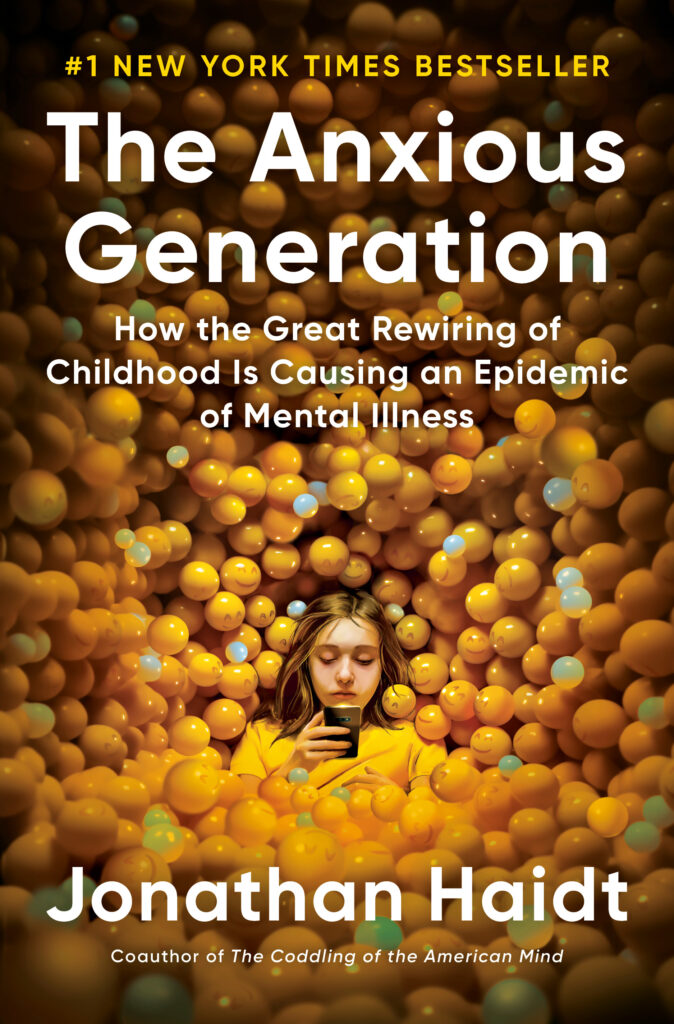Unearthing joy

Tom Simpson on the all-faculty summer reading, what he read and what he’ll bring into the classroom
Each year, the Dean of Faculty recommends one or two books for Exeter faculty to read over the summer. It’s a way of bringing us together to think about various topics relating to our work in the classroom and community. The common read I chose this summer was Gholdy Muhammad’s Unearthing Joy: A Guide to Culturally and Historically Responsive Teaching and Learning. It is a vibrant, exuberant book. When I thumbed through it and saw a QR code for a playlist that includes musicians John Coltrane, Stevie Wonder, Janet Jackson, Nas featuring Lauryn Hill, Bob Dylan and Nina Simone — with the Langston Hughes poems “Oppression” and “Freedom” on the facing page — I knew this would be my kind of summer read.
I don’t remember much joy accompanying my time in school as a kid. I often felt anxious about having to spend the day with teachers who didn’t seem to enjoy kids all that much, or getting caught up in recess games that took a page from Lord of the Flies. Joy was elsewhere: in the best satire of Saturday Night Live and The Simpsons, in hearing Run DMC and Tracy Chapman for the first time, or in my friends’ pitch-perfect imitations of our tormentors.
In my own teaching over the last 25 years, a central motivation and commitment has been to make it clear to students right out of the gate that the best classrooms are spaces of love. We will laugh together; we will be curious together; and when we encounter some of the best literature and film related to the human struggle for wisdom, compassion, justice and peace, we will probably shed a tear together.
Attempting to strike this kind of balance is so urgent, and so necessary, because these are such turbulent times. We know that students are increasingly anxious, and sometimes we imagine that we could fix it for them if we simply took away their screens. There’s some truth to that. What’s truly ailing this generation, however, is deeper than stress, deeper than anxiety, deeper than loneliness. It’s alienation, caused by the profound moral injury and cognitive dissonance of knowing that the power brokers of the world see them as disposable — as worth something only insofar as they offer labor that can be extracted and exploited, with no reliable guarantees of the most basic human rights, dignity and justice.
How can we blame young people for looking at their world and concluding that normalized mass death — from COVID, from the climate emergency and from war — is simply the cost of doing business?
Schools, therefore, must be not only a refuge from the madness and cruelty of the world, but also a place where students can speak and hear the truth about the world. Only then can we imagine ethical and just alternative futures together. Muhammad has some beautiful words for the importance of navigating these troubled waters skillfully and with love. For the best teachers, she writes, “love [means] interrupting the numbness and distance we feel when others are oppressed, hurt, or harmed.” She adds:
“[J]oy cannot be embraced fully if oppression is present … . This is why a balance of criticality and joy is essential. Joy also balances out the teaching of hard truths and histories, such as Indigenous boarding schools, Asian hate, Islamophobia, the Holocaust, and crimes against women and LGBTQ+ people (to name just a few of so many examples). Groups that experienced those truths and histories had joy before injustices were inflicted upon them. They often used the joy found in painting, music, fashion, and other artistic endeavors not to be overcome with pain.”
Authentic joy thus cannot be a matter of merely escaping what’s painful about the world. Joy comes through acknowledging our shared pain with straightforward honesty and courage. But once that honesty, connection and trust are established between teachers and students, look out. Liberation ensues, with its attendant joy. Such joy is so much deeper and more beautiful than the quick little hits of happiness that are constantly packaged and sold to us. It’s the big-hearted, full-throated joy of reconnecting with one another in shared beauty, imagination and play. It’s the abiding joy we feel when we can be part of teaching and learning at their best.
Listen to the playlist from the Unearthing Joy – this summer’s all-faculty read.
The Other Faculty Read
Exeter faculty had another choice for the common summer read: The Anxious Generation: How the Great Rewiring of Childhood Is Causing an Epidemic of Mental Illness, by Jonathan Haidt. The book, which shot straight to the top of bestseller lists, looks at the impact that the rise of smartphones and overprotective parenting has had on children and teenagers, particularly in the realm of mental health. In the wake of the book’s success, at least 13 states have passed laws banning or restricting smartphone use in schools.

Tom Simpson is chair of Exeter’s Religion, Ethics and Philosophy Department. He earned his Ph.D. from the University of Virginia in religious studies with a specialization in modern U.S. religious history. He has been teaching at the Academy since 2008 and is the author of the book American Universities and the Birth of Modern Mormonism, 1867–1940 and multiple essays about postwar Bosnia and Herzegovina.